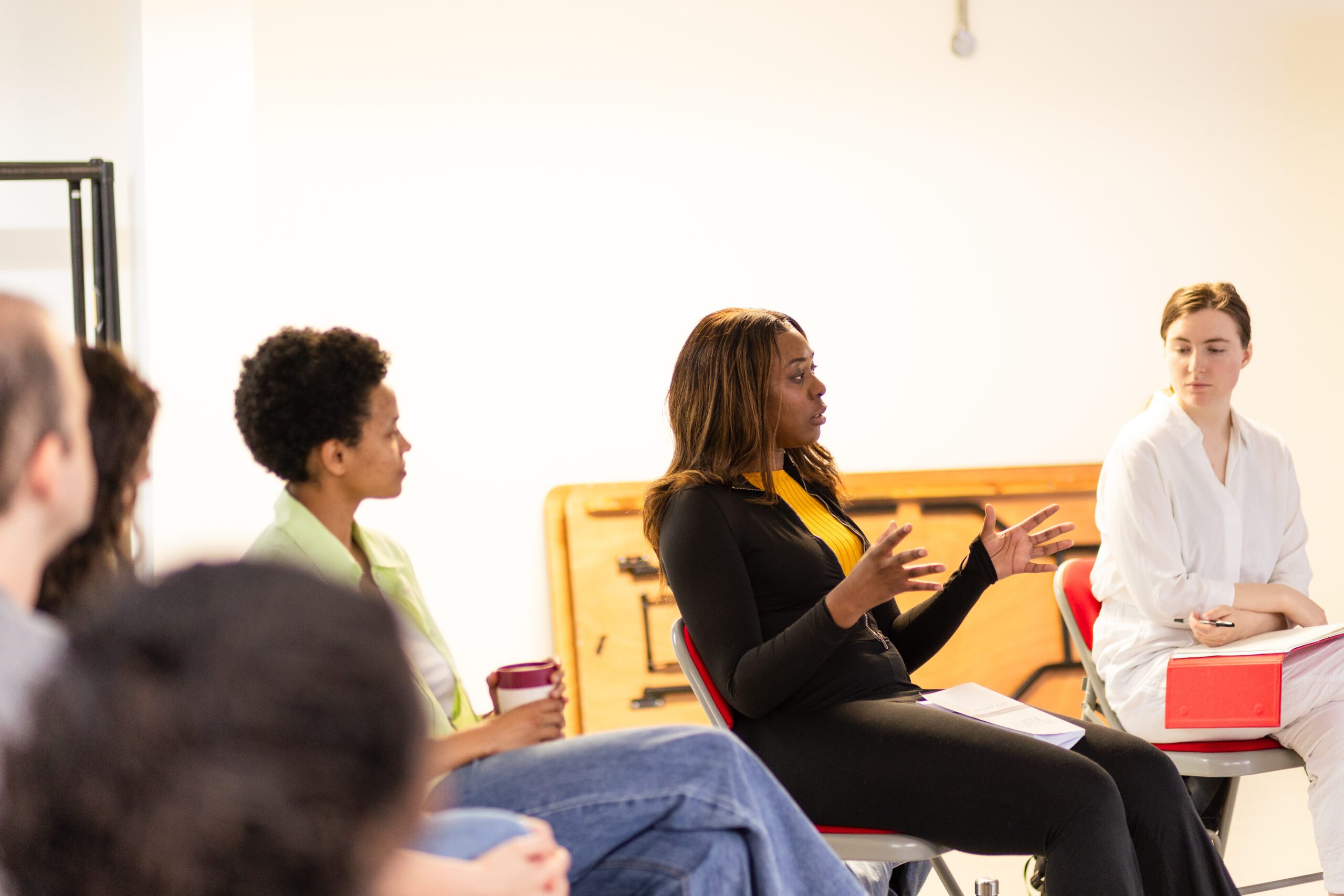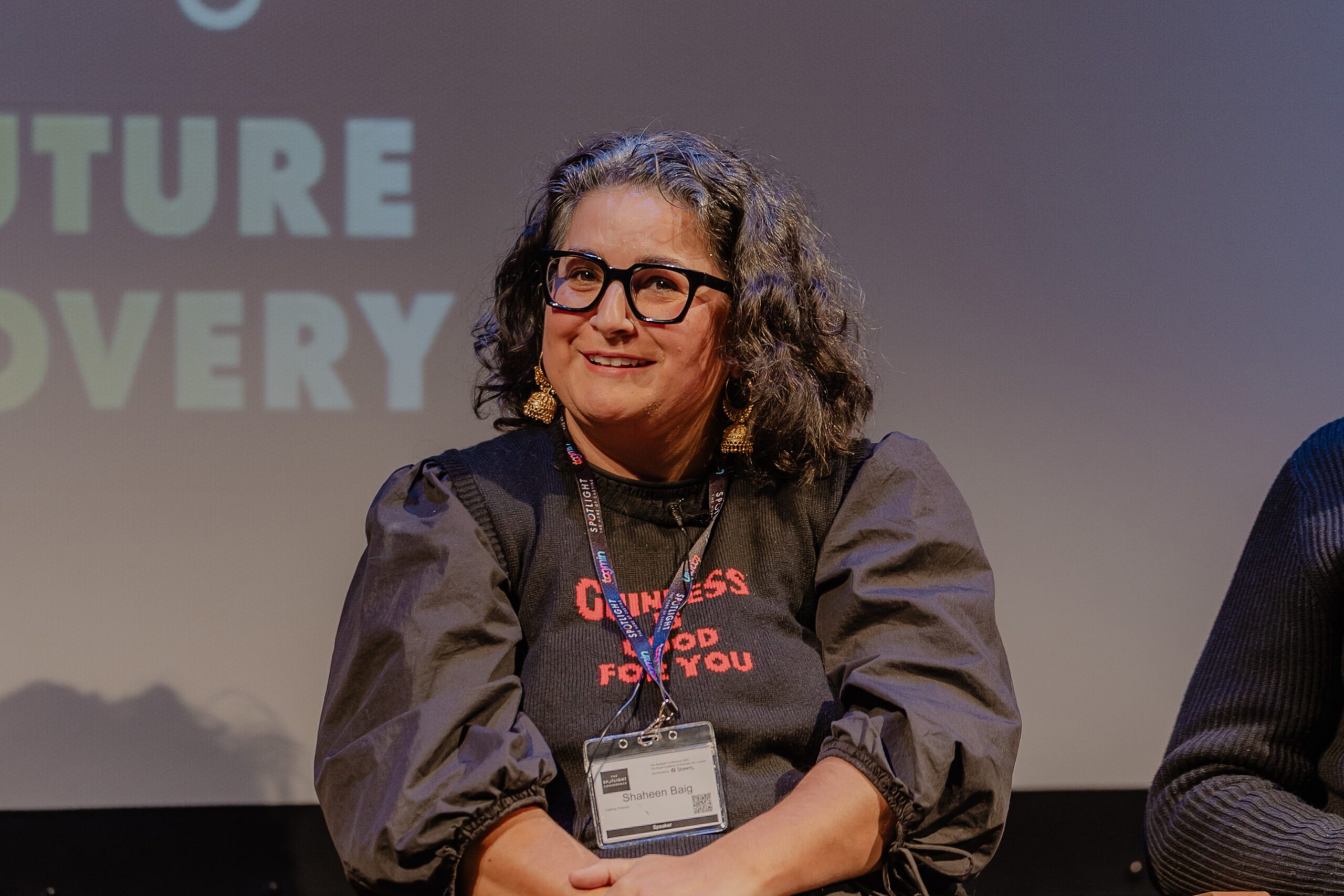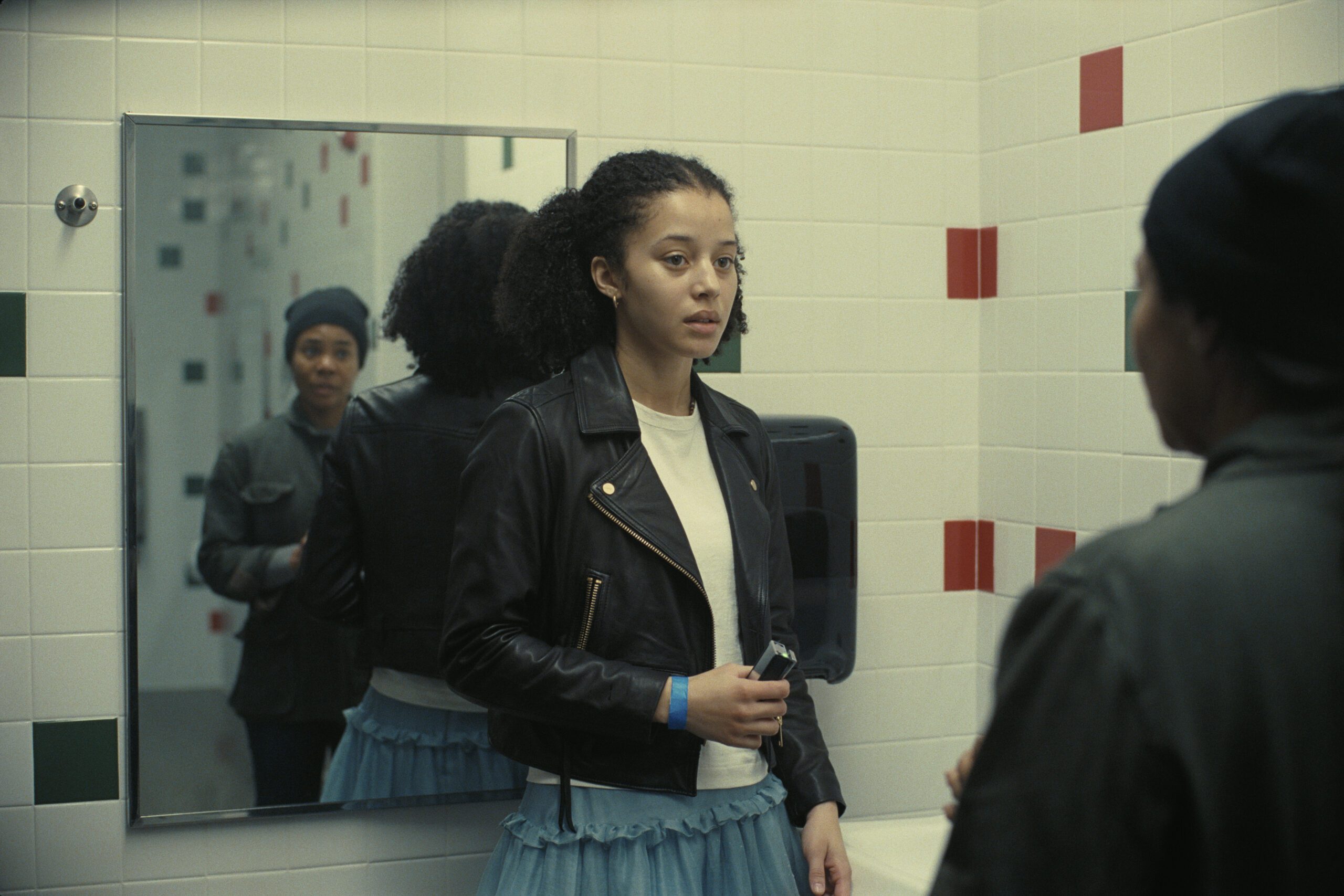What Actors’ Trust is and how performers can receive financial and wellbeing support from it.
The performing arts industry is known for its creativity and vibrancy, but behind the scenes, many actors and stage managers face challenges like financial difficulty and social isolation. Thankfully, we have charities like Actors’ Trust (formerly known as the Actors’ Benevolent Fund). For over 140 years, this charity has been a lifeline within the industry, offering support and a sense of community to struggling actors.
Spotlight is proud to continue supporting Actors’ Trust as it uncovers the changing needs of performers within the industry. As part of this, we spoke to the trust’s CEO, Alison Wyman, and Chair and actor, Alex Macqueen (The Thick of It, The Inbetweeners, The Feud). Together, they discussed Actors’ Trust’s mission, how it’s currently evolving to offer the right support to modern performers, and how performers can reach out to them for support. Alex also shared some insights from his successful career and his top tips for other performers.
Here’s what they shared:
Hi Alison and Alex! Could you please introduce yourself and tell us about your industry background and how you first got involved with Actors’ Trust?
Alison: I’m Alison Wyman, the Chief Executive of Actors’ Trust. My background is very much in the charity sector. I’ve spent the past 20+ years working for charities. I started my career doing debt advice, then moved into grant-making and then developing services within charities.
I joined Actors’ Trust in July 2023. I wasn’t actually looking for a Chief Executive role, but I realised that I’d managed larger teams and budgets within other organisations and I fitted the description of what they were looking for. So, I thought I’d apply, see what happens, and ended up getting the job. And I’m very pleased that I did. From day one, I had a real passion for the potential of the charity to continue the very rich legacy that it has, but also to reach more people and achieve even greater impact.
Alex: I started off very briefly as a barrister. I practised law for about a year before becoming an actor and did quite a bit of company and commercial law. About eight years ago, I joined another trust called Z2K, which is an anti-poverty trust in London, just to exercise the legal part of my mind. I’m genuinely very interested in how organisations work. I used to do winding-up petitions in the High Court, so I have insight into what makes companies work or fail.
When Actors’ Trust was recruiting new trustees, it felt like an appropriate thing to join because of the link to acting. I stood, got elected and have been absolutely delighted to be part of it since. I’ve only been doing it for a year and a half, and it’s been an incredibly steep learning curve.
What is Actors’ Trust and what is its core mission?
Alison: Actors’ Trust is a charity for actors and stage management professionals, founded in 1882 as the Actors’ Benevolent Fund. Our core mission is to support people who are unable to work for reasons outside of their control. Today, we do that by helping people in a range of ways to be financially secure, to be connected with others and to just generally thrive in their lives.
Alex: Traditionally, over the last hundred years, it’s been for actors in the later stages of their career and life. But given that the industry has altered over the last 50 years, we’ve made a decision to broaden the amount and types of support we give, and the variety of people we give it to. It’s for all ages. People probably haven’t heard of it, especially younger people. We’re making a conscious effort to recalibrate how we’re perceived and what we can provide.
Alison: Last month, we responded to engagement within the profession and feedback from our members by repositioning the charity so that we could raise more awareness, expand our range of support and make ourselves more accessible. Practically that has meant launching our new name ‘Actors’ Trust’ and introducing a new website and new initiatives.
It was an interesting debate over what to call it and I really like trust because I think it kind of denotes the longevity of the organisation. It’s got gravitas to it. It sounds like we’ve been around for a long time, which we have.
How does Actors’ Trust differ from other industry charities and support organisations?
Alison: We were founded over 140 years ago by actors and stage managers, so we’re sort of by the community for the community, and we’ve still got that solid community of members to help us reach and engage with the profession. As a charity, we provide the largest amount of financial support directly to individuals, and we’ve also been carrying out research to make sure that we continue to be as relevant and impactful as possible to the profession today.
Also, being a membership organisation, we provide a place of community and belonging in an industry that can be wonderful but also quite challenging. People can feel quite lonely at times, so we provide that place of community and belonging for people.
Alex: There are around 650 members [paying] £20 a year to be a member, and what we’re aiming to do is broaden out what it means to become a member and what is offered. You don’t have to be a member to receive the support. Anybody in need who is part of the acting and stage management fraternity can apply and be assisted.
Could you share some examples of how Actors’ Trust has helped performers in recent years?
Alison: We provide financial support directly to people in need and who can’t work. We have a history of being very responsive to changing needs within the profession. So, for example, during the Covid pandemic we provided emergency grants and during the cost of living crisis we also were very mindful of trying to protect people’s physical and mental wellbeing. We work in partnership with BAPAM to deliver free workshops covering a range of topics – stress, anxiety and burnout, coping with rejection, vocal health. Those are a few of the topics.
We’re also starting to deliver more community events. We provide coffee and choir mornings in partnership with the Royal Theatrical Fund and we’re starting to provide more events for our members, including exclusive Q&As featuring leading industry professionals such as Simon Callow and Lesley Joseph.
Alex: There was a young performer recently who contacted Actors’ Trust office in great need. They had advanced cancer and were at risk of being evicted from their home because rental bills could not be paid. We were there immediately to provide instant financial support to assist them. We’re here for young people who are in need.
I don’t know much more about that case because we’re very sensitive about protecting people’s confidentiality and their data. I think that’s a useful thing for people to know – trustees who are involved in Actors’ Trust generally do not get to know the names and identities of those we assist.
You launched a survey in association with a number of organisations, including Spotlight, looking into the greatest challenges actors and stage managers face in the industry. Could you tell us about some of the key findings from that?
Alison: We are indeed undertaking a large piece of research. We’re very grateful to Spotlight for your support and to all the people that have taken part. Over 3,700 people have taken part in it. We’ve finished the survey. We’re now following it up with some qualitative in-depth interviews with people to try and understand, to get some insight behind the numbers in the survey. While we can’t yet share specific findings, one large theme that we can already see coming through is the mental health challenges that professionals are facing, and that is very much backed up by previous research which found that actors are twice as likely to experience depression as the general population. So it’s not a massive surprise.
It has reinforced our decision to reposition the charity to provide a broader range of support to supplement the financial support we’re already providing, including the wellbeing webinars and a partnership with Shout to provide 24-hour mental health support.
Besides the name, what is the main thing that’s changed at the charity?
Alison: We’re on a journey of broadening our support because we recognise that people’s needs today aren’t necessarily the same as they were back in 1882 when the charity was founded. And we’re very much going to be using the research to determine what those services and initiatives should be.
So far, we’ve introduced support with the cost of therapy in some cases and expanded our financial grants program, so we can help anyone who’s unable to work for reasons outside of their control. Previously, it was restricted to illness, injury or old age, so now it recognises major life events as well. We’ve also begun introducing community events. We’ve introduced a new telephone number to provide faster support and a new website, so we’ve improved the accessibility of our services.
We’re going to launch the findings [of the survey] in the new year. I think it’s really important to be evidence-based. We can all have our own ideas of what we think the greatest challenges are, but we need people in the profession themselves to tell us and then use that to guide where we spend the charity’s money.
You mentioned that feedback from your members helped to shape the new repositioning – can you explain more?
Alison: Because we’re a membership charity, it’s really important to us to hear from our members and to let them guide what we do as a charity because it’s their charity. We were very aware that society has changed significantly since 1882. We know there’s more self-tape auditions, less in-person interactions, and also the rise of AI, which I know is causing concern across the profession. We’re aware that we have to keep adapting if we’re going to remain relevant and have the greatest possible impact that we can.
We reached out to our members to find out what they think our priorities should be as an organisation. Over 90% vocalised a desire for us to raise awareness, reach more people, help more people. Just over a quarter felt that the charity was well known within the industry and that we need to do more to extend our reach. In partnership with Spotlight, we surveyed almost 5,000 industry professionals and three quarters revealed they were unfamiliar with what we actually do. Half of the respondents hadn’t actually heard of us at all. So it was clear that far too few people actually knew about us.
Our image hadn’t been updated in 25 years, and we found when we engaged with people that the word ‘benevolent’ isn’t a word that is used particularly in people’s everyday lives. We felt that ‘fund’ places a very heavy focus on money when actually our membership was indicating we should be broadening out what we do.
We felt that in order to reach more people in a way that would be relevant to the industry today, we needed to update our image. So this is very much a direct response to what our members have told us that they wanted – for us to increase visibility, awareness and have more of an impact.
How can a performer reach out to Actors’ Trust to get support?
Alison: They can visit our website. That contains a vast amount of information. People can also apply directly through the website for support, including our grants program. We can provide help with short-term needs. So, for example, if someone’s struggling to pay bills because they haven’t been able to work, that’s one example of support. If somebody is never going to be able to work again, we can provide some long-term support to supplement their income.
We also love to hear from people directly. So, people can email us at hello@actorstrust.org.uk or they can give us a call on 0303 223 1110. It’s worth saying that some of our staff come from acting backgrounds themselves.
If people do contact us they are engaging with people who understand the profession and the challenges because many of our staff have faced those same challenges themselves. People can also become a member of the charity. It costs £20 a year, and it’s a way to give back to the profession – to help your peers who are in need – as well as joining a community of people that understand what it’s like in this profession, because it’s quite a unique way of life.
Alex, you’ve had a varied and successful acting career. What have been some of your standout moments from it?
Alex: I’ve been very lucky in terms of the opportunities had. I started off with an advert for Utterly Butterly, which was improvised, and that got me into the crosshairs of Amando Lanucci, who was casting an improvised comedy called The Thick of It. Because I got into the comedy slipstream, that got me involved in The Inbetweeners, and from there, it got me involved in projects that I’ve been attached to [ever] since.
In particular, the joy of working with Julia Davis, whom I’ve worked with on a number of occasions. She’s not just brilliant as a human being, she’s brilliant creatively. I’ve been very, very fortunate to work with her and a couple of childhood heroes, too. The penny dropped that I was a lucky individual when I was working with Michael Caine in a film called Youth. I’d watched him as a child and suddenly to find myself acting opposite him in a film was a real threshold of delight.
How do you maintain your motivation and creativity during quieter periods of work?
Alex: I turn my hand to writing. I’m involved in a writing project at the moment and have done and been involved in previous ones in the bargain. Writing is a really useful creative outlet. I suggest having interests and focuses outside of acting itself because acting is such good fun. It’s a sort of hobby that becomes a job. It’s too easy to place it front and centre in your life and make your entire life all about acting. If you can bring yourself slowly but surely to open up other avenues of interest and keep those alive, that’ll be very helpful to you when you do go through these quieter, less exciting periods.
Most of my peer group have become highly successful because they refused to wait for the phone to ring and decided to write their own material. When I was starting out 25 years ago, there were a few channels and very few avenues into the workplace. But now, you could make a film or a short television series off the back of your iPhone and publish it on YouTube. The ability to come to market is far easier and greater now.
Finally, what’s the best piece of acting advice you’ve ever been given?
Alex: A really useful thing I heard from a fellow actor was, ‘Action means go when you’re ready’. The tension and stress of a take is quite powerful, because you could have 200 people on set and suddenly the entire operation is focusing on you and you alone. When you hear the word ‘action’, you feel like a horse about to bolt, and that can militate against a calm and nuanced performance. Rather than suddenly going on ‘action’, take a breath, take a moment and give yourself that space.
Another piece of advice from a director is to ‘Play the drama, don’t play the comedy. The script will do all that for you. All you must do is play the truth.’ That was a very useful insight.
I did acting when I was a kid because it was great fun. It was such a pleasure to inhabit another character, say other words and be somebody else. One of the tragedies of doing it for a living is it gets wound up in how to pay your mortgage and personal ambition and all the rest. It’s too easy to forget the need to play and enjoy it. There’s a great actor in the US, Bob Odenkirk, who says, ‘It’s all phony baloney, but it’s good fun’. I think it’s really important to remember to have fun with it and not lose the joy that probably inspired you to do it in the first place. That would be my pearl: remember to enjoy it. It’s meant to be good fun.
A massive thanks to Alison and Alex for telling us more about Actors’ Trust and sharing their experience!





